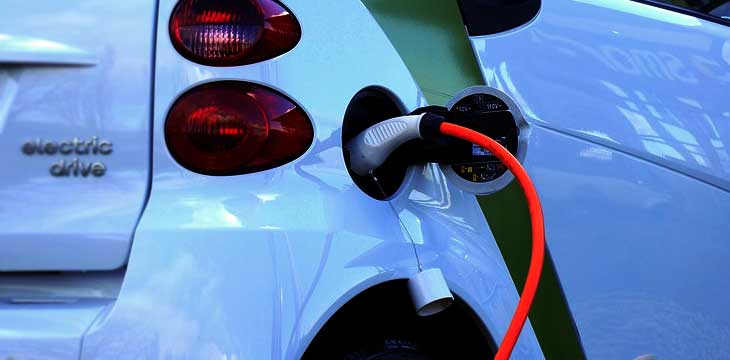|
Getting your Trinity Audio player ready...
|
Researchers at the University of Waterloo in Canada are working on a project that will see blockchain technology being used to improve trust in electric vehicle (EV) systems.
According to EurekaAlert, the researchers discovered that there is a lack of trust among charging service providers, owners of electric vehicles and property owners. The study, titled “Mitigating Trust Issues in Electric Vehicle Charging using a Blockchain,” is authored by researchers Christian Gorenflo, a PhD candidate in Waterloo’s David R. Cheriton School of Computer Science; Prof. Srinivasan Keshav of the Cheriton School of Computer Science; and Lukasz Golab, professor of Management Science.
Generally, an EV charging service provider has to look and partner with property owners to install charging points. Owners of electric vehicles can use these charging points for a fee, and the revenue collected from these charging stations is then shared between the charging service provider and each property owner.
Gorenflo explained, “Energy services are increasingly being provided by entities that do not have well-established trust relationships with their customers and partners. In this context, blockchains are a promising approach for replacing a central trusted party, for example, making it possible to implement direct peer-to-peer energy trading.”
Notably, by using blockchain in the charging system, all parties will be able to access all data. EV owners will be able to check whether they are being overcharged. At the same time, property owners will be able to check whether they are being underpaid.
During the course of the study, the researchers were able to identify three steps that were necessary for blockchain’s incorporation. The first step, according to the researchers, entails identifying the involved Parties and their trust relations. Secondly, the process will involve designing a minimal blockchain system that addresses the issues discovered during the first step. Lastly, finial mitigation of other systems once the blockchain system is complete. Gorenflo noted:
“Mitigating trust issues in EV charging could result in people who have charging stations and even those who just have an outdoor outlet being much more willing to team up with an EV charging service provider resulting in much better coverage of charging stations.”
The automobile industry has been actively involved in harnessing the power of blockchain for consumers. In July, Boeing formed a partnership with SparkCognition, an artificial intelligence tech company to create an unmanned aircraft system traffic management (UTM) solution. In April, Volkswagen launched a blockchain system to help track its battery supply chain.u

 02-19-2026
02-19-2026 




